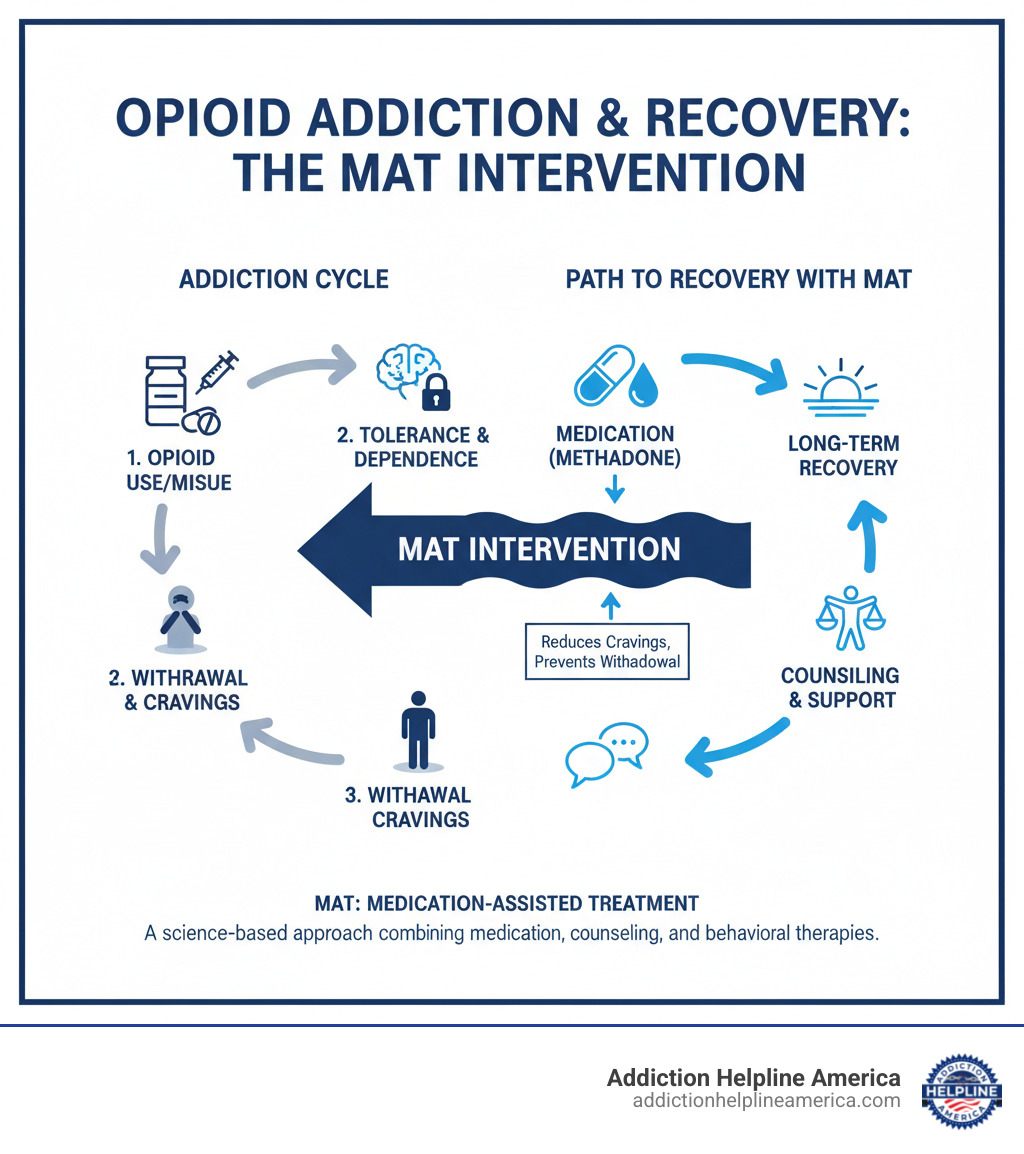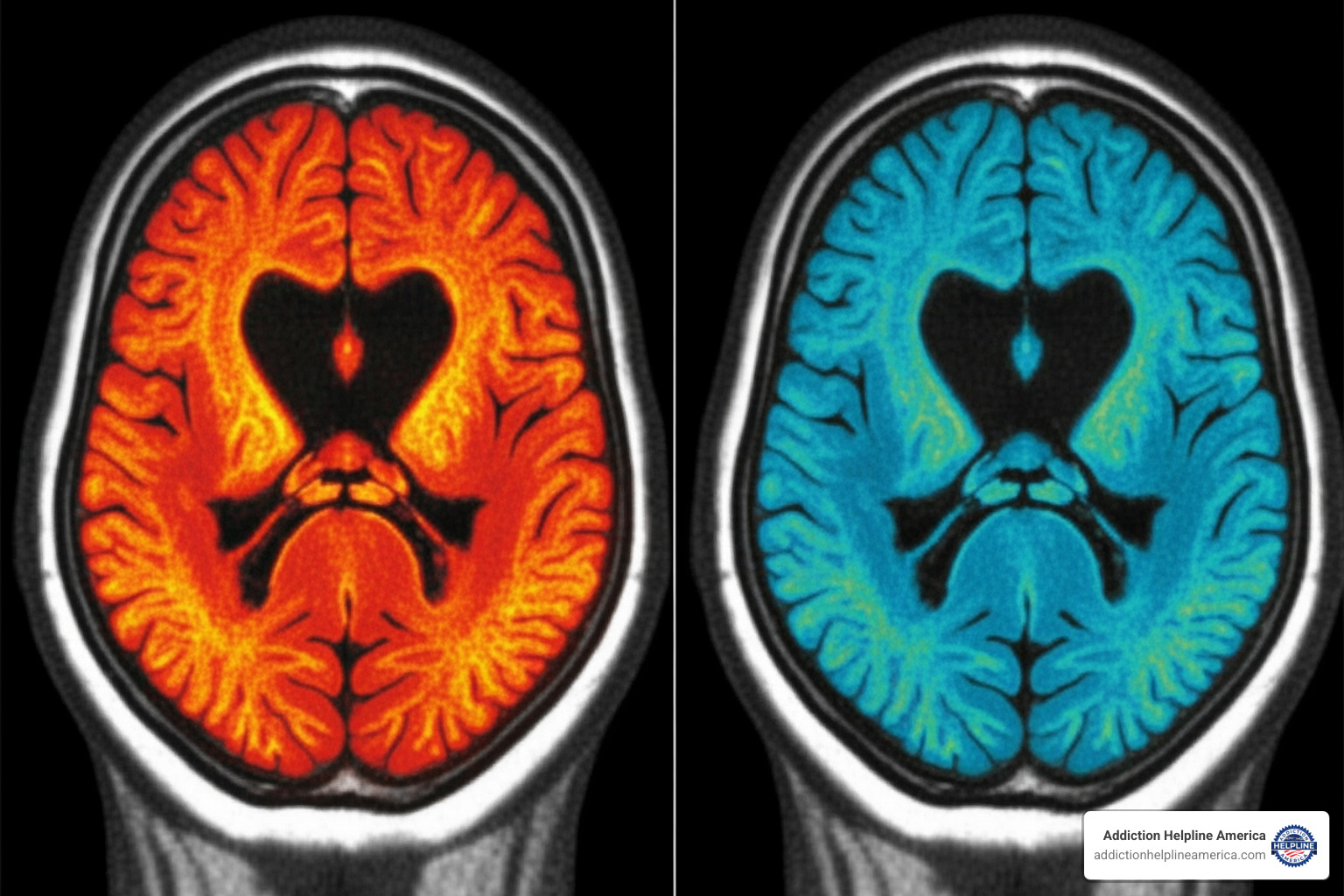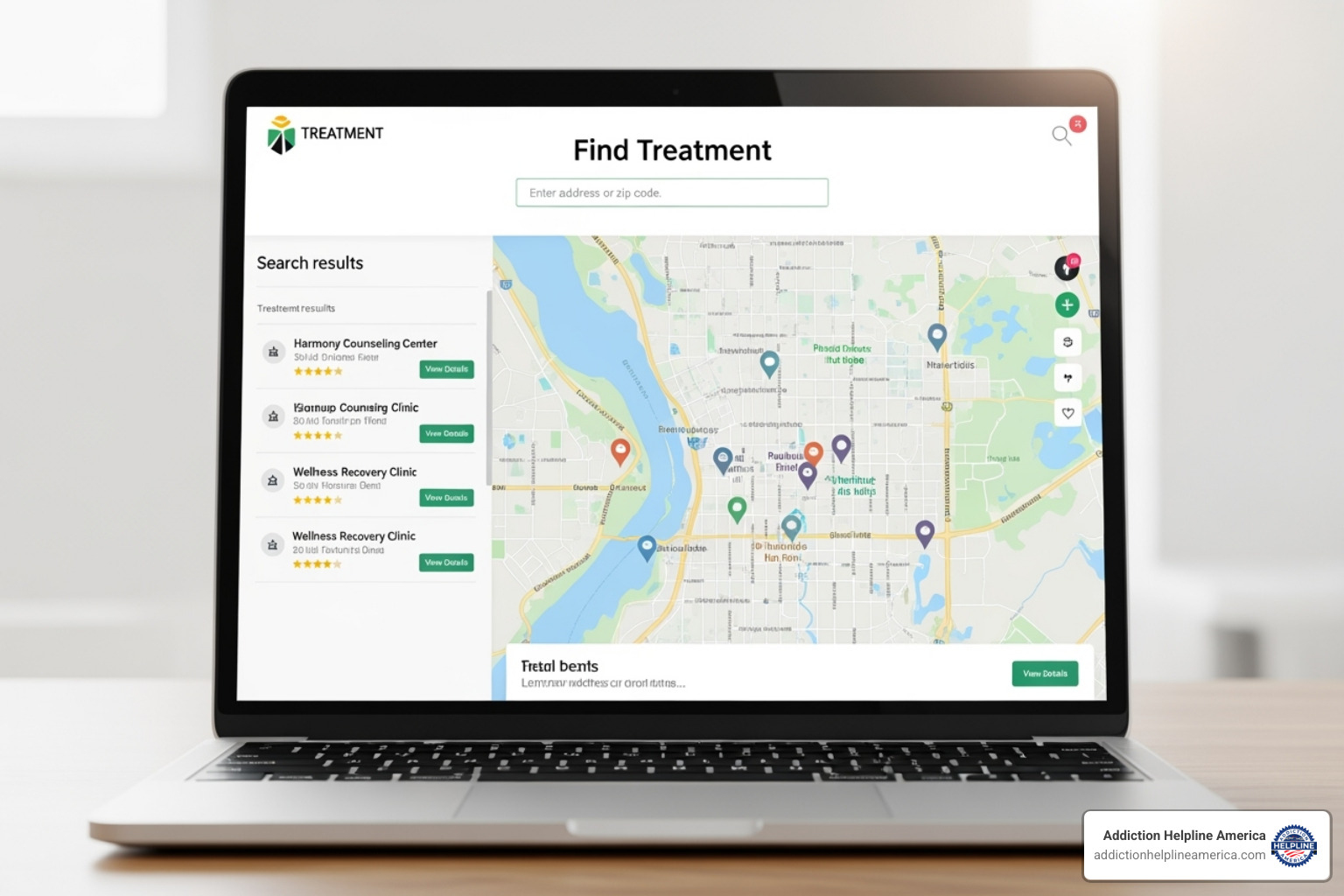
Finding the Right Medical Support for Opioid Recovery
Doctors near me that prescribe methadone are specialized healthcare providers working in federally licensed Opioid Treatment Programs (OTPs), not typical family doctors. Here’s how to find them:
Quick Ways to Locate Methadone Doctors:
- Reach Out to Addiction Helpline America: Get personalized, confidential referrals to local providers.
- Contact Your Insurance Provider: Request a list of covered methadone clinics.
- Ask Your Primary Care Doctor: They can often provide referrals to specialized treatment programs.
The opioid crisis has devastated communities across California and the nation. Thousands of people die every year in California from heroin or opiate-related overdoses. Prescription drug abuse has become the fastest-growing drug use trend nationwide, with millions abusing opioid painkillers like Oxycontin and Oxycodone.
But there is hope.
Methadone is an FDA-approved medication that has been successfully treating opioid addiction for nearly 50 years. It reduces cravings, eliminates withdrawal symptoms, and helps restore stability to daily life. When combined with counseling and behavioral therapy, methadone maintenance treatment offers one of the most effective paths to long-term recovery.
Finding the right doctor to prescribe methadone can feel overwhelming when you’re in crisis. This guide will walk you through exactly how to locate qualified methadone providers in your area, what to expect from treatment, and how to take the first step toward recovery.
At Addiction Helpline America, we’ve helped thousands of individuals and families steer the path to recovery from opioid use disorder, including connecting them with qualified doctors near me that prescribe methadone and other evidence-based treatment options. Our experienced team understands the urgency you feel and is here to provide the confidential guidance you need right now.
Understanding Methadone and Its Role in Opioid Recovery
If you’re searching for doctors near me that prescribe methadone, you’re probably wondering what this medication actually is and how it can help with opioid recovery. Let’s walk through this together.
Methadone is a synthetic opioid—meaning it’s created in a laboratory rather than extracted from plants. Now, before that word “opioid” triggers alarm bells, understand this: when used properly in a medical setting, methadone works completely differently than the drugs that led to addiction in the first place.
Technically, methadone is what’s called a full agonist. This means it activates the same receptors in your brain that other opioids do. But here’s what makes it special—methadone has a very long half-life. In plain English? It stays in your system much longer, working gradually and steadily instead of creating the roller coaster of highs and crashes that come with illicit opioids.
This long-lasting quality is exactly why methadone works so well for recovery. It reduces cravings for opioids—those overwhelming urges that can make every minute feel like a battle. At the same time, it eliminates withdrawal symptoms, those miserable physical and emotional effects that keep people trapped in the cycle of addiction. And perhaps most importantly, when taken as prescribed, methadone blocks the euphoric effects that people chase with street drugs.
Think of your brain like an alarm system that’s been going off constantly, demanding more opioids. Methadone essentially turns down the volume on that alarm, giving your brain chemistry a chance to stabilize and find balance again.
The benefits of methadone maintenance treatment go far beyond just stopping drug use. This approach restores stability to daily life—helping people hold down jobs, rebuild relationships, and refind who they are beyond addiction. Research consistently shows that methadone treatment lowers overdose risk dramatically compared to continued illicit opioid use. That’s not just a statistic—that’s lives saved.
Here’s something that might surprise you: methadone has been used for over 45 years as an FDA-approved treatment for opioid addiction. This isn’t some experimental approach. Generations of people have found their way back to healthy, productive lives through methadone maintenance treatment.
How Methadone Helps Treat Opioid Use Disorder (OUD)
Let’s get more specific about what methadone actually does inside your body and brain.
Opioid use disorder fundamentally changes how your brain works. Illicit opioids hijack your brain’s reward system, creating intense pleasure followed by crushing lows. This creates a vicious cycle that feels impossible to escape. Methadone stabilizes brain chemistry by providing a consistent, controlled presence at those opioid receptors. Instead of the extreme ups and downs, you get steady, calm functioning.
When your brain chemistry is stable, something remarkable happens—you can finally focus on recovery. Instead of spending every waking moment obsessing about where your next dose will come from or how to avoid withdrawal, you have mental space for what really matters. You can engage in counseling. You can learn new coping skills. You can show up for your family.
This stability reduces illicit drug use in a very practical way. When methadone is meeting your body’s needs, the desperate craving for street drugs fades. You’re not fighting yourself anymore.
Perhaps most importantly, methadone treatment improves daily functioning across the board. People in methadone maintenance programs go back to work. They repair damaged relationships. They take care of their health. They become present in their own lives again. Recovery isn’t just about stopping drugs—it’s about reclaiming everything addiction took from you.
How to Find Doctors Near Me That Prescribe Methadone
Here’s something important to understand right from the start: finding doctors near me that prescribe methadone isn’t like scheduling an appointment with your regular family doctor. Methadone treatment for opioid use disorder operates under a completely different framework, and there’s a good reason for that.
Unlike some other addiction medications like buprenorphine (Suboxone), which certain family doctors can prescribe after obtaining special training and certification, methadone must be dispensed through specialized, federally licensed facilities called Opioid Treatment Programs (OTPs). You might also hear them referred to as methadone clinics. These aren’t your typical medical offices—they’re highly regulated treatment centers where specially trained providers oversee every aspect of methadone treatment.
This tight regulation exists to protect you. The federal government established strict protocols back in the 1970s to ensure methadone is administered safely and effectively. While these regulations haven’t changed dramatically since then, they remain in place because methadone is a powerful medication that requires careful monitoring. Your family doctor, while capable of diagnosing opioid use disorder and providing referrals, simply cannot write you a prescription for methadone that you’d pick up at your local pharmacy.
So when you’re searching for doctors near me that prescribe methadone, what you’re really looking for are these specialized Opioid Treatment Programs staffed by licensed medical professionals who work within this federally regulated system.
Using Online Resources to Find Doctors Near Me That Prescribe Methadone
The good news? You’re not alone in this search, and there are numerous resources designed specifically to help you find the right treatment. Let’s walk through the most reliable ways to locate doctors near me that prescribe methadone in your area.
An excellent place to start is with Addiction Helpline America’s confidential helpline and treatment locator tool. We’ve built our entire service around understanding that everyone’s situation is unique. When you reach out to us, you’re not just getting a list of clinics—you’re getting personalized guidance from people who genuinely care about your recovery. Our team can help you steer your options, understand what different programs offer, and connect you with qualified providers in our extensive network. We know this process can feel overwhelming, and we’re here to walk alongside you through it.
Don’t overlook your state and local health departments, either. They maintain updated lists of licensed treatment providers and can offer localized guidance that’s specific to your community. Sometimes they’re aware of newer programs or special initiatives that might not appear in national databases yet.
If you have health insurance, calling your provider directly can save you time and money. They can tell you exactly which methadone clinics are covered under your plan and what your out-of-pocket costs might be. Many people don’t realize that most insurance plans, including Medicaid and Medicare, cover methadone treatment. Some clinics also offer sliding scale fees based on your income, so cost shouldn’t prevent you from seeking help.
Local health clinics, hospitals, rehabilitation centers, and even community support groups can point you in the right direction. While they may not prescribe methadone themselves, social workers, case managers, and fellow people in recovery often have valuable insights about local treatment options. Sometimes the best recommendations come from those who’ve walked this path before you.
What to Look for in Doctors Near Me That Prescribe Methadone
Once you’ve identified a few potential programs, how do you know which one is right for you? Not all methadone clinics are created equal, and choosing the right fit can make a significant difference in your recovery journey.
Start by verifying credentials and licensing. Every legitimate methadone clinic must be licensed by both federal and state authorities. Don’t hesitate to ask about their accreditation—reputable programs will be transparent about their credentials and proud to share them. This isn’t just bureaucratic red tape; these regulations exist to ensure you receive safe, effective care.
The most effective programs take a comprehensive approach to treatment. Methadone is powerful, but it’s not a magic bullet. Real, lasting recovery happens when medication works hand-in-hand with counseling and behavioral therapies. This combination is called Medication-Assisted Treatment, or MAT. Look for programs that offer Cognitive Behavioral Therapy (CBT), which helps you recognize and change negative thought patterns that fuel addiction. Motivational Interviewing (MI) is another valuable approach that strengthens your own motivation to change. Both individual and group counseling sessions provide crucial support, allowing you to process your experiences, learn from others, and build a community of people who understand what you’re going through.
Many people struggling with opioid addiction also face mental health challenges like depression, anxiety, or trauma. These are called co-occurring disorders, and they need attention too. A quality program will screen for these conditions and offer integrated treatment that addresses both your addiction and your mental health. Treating one without the other rarely leads to lasting recovery.
Pay attention to the environment and atmosphere when you visit or call a clinic. Recovery requires vulnerability, and you need to feel safe, respected, and supported. The staff should treat you with compassion and dignity, not judgment. If a program makes you feel uncomfortable or dismissed, trust your instincts and keep looking.
Let’s talk about insurance acceptance and affordability. The reality is that cost concerns stop many people from seeking treatment, but it doesn’t have to be that way. Most methadone clinics accept various insurance plans, including Medicaid and Medicare. Many also offer payment plans or sliding scale fees based on your income. Be upfront about your financial situation—good programs want to help you find a way to afford treatment, not turn you away.
Finally, look for programs that emphasize long-term treatment planning. Opioid use disorder is a chronic condition, much like diabetes or heart disease. It requires ongoing management, not just a quick fix. A strong program will work with you to develop a personalized plan that includes strategies for continued support, relapse prevention, and, if appropriate, eventual tapering off methadone when you’re ready. Your recovery goals are unique to you, and your treatment plan should reflect that.
Choosing a methadone program is a deeply personal decision. Take your time, ask questions, and gather as much information as you need. This is your journey, and finding the right support system is one of the most important steps you’ll take.
The Methadone Treatment Journey: What to Expect
Starting methadone treatment is a significant step toward reclaiming your life. We know it can feel daunting, especially when you’re not sure what lies ahead. Understanding the process can help ease those worries and prepare you for the journey to recovery.
Your journey begins with a comprehensive initial assessment. This isn’t a quick formality—it’s a thorough conversation where the medical team gets to know you and your unique situation. During this assessment, your doctor will take a detailed medical history, reviewing your overall health, any existing medical conditions, and previous treatments you’ve received. They’ll also conduct a substance use evaluation, where you’ll discuss your history with opioids openly and honestly. This includes the types of opioids you’ve used, how long you’ve been using them, and your patterns of use. There’s no judgment here—just a genuine effort to understand what you’ve been through so they can help you effectively.
Because many people struggling with opioid use disorder also face mental health challenges, your assessment will include a mental health screening. Depression, anxiety, trauma—these often go hand-in-hand with addiction, and addressing them is crucial for lasting recovery. Think of this screening as making sure all the pieces of your health puzzle are on the table, so nothing gets overlooked.
From this assessment, your medical team creates a personalized treatment plan custom specifically to you. This isn’t a cookie-cutter approach. Your plan will outline your methadone dosage, the types of counseling you’ll participate in, and the goals you’re working toward. It’s your roadmap.
One of the hallmarks of methadone treatment is daily dosing at a clinic. In the beginning, you’ll visit the clinic each day to receive your medication under medical supervision. We understand this might sound like a lot, but there’s good reason for it. These daily visits ensure you’re getting the right dose, allow the staff to monitor how you’re responding to treatment, and provide consistent support during those crucial early weeks. You’re not alone in this—there’s a team watching out for you.
As part of your treatment, you’ll also undergo regular urine drug testing (UDT). These tests aren’t about catching you doing something wrong—they’re a tool to help monitor your progress, ensure the treatment is working, and keep you safe. Research shows that all patients on long-term opioid therapy should have periodic urine drug tests to ensure safety and effectiveness, typically at least once a year.
Beyond the medication itself, ongoing support through counseling sessions is absolutely fundamental. This is where the real healing work happens. You might participate in individual therapy, where you can explore personal challenges in a private, safe space. Group therapy offers something equally powerful—the chance to connect with others who truly understand what you’re going through. Some programs also offer family therapy, recognizing that addiction affects everyone in your circle and that healing often needs to happen together.
As you demonstrate stability and stick with your treatment plan, you’ll work toward earning take-home doses. This is a significant milestone that reduces how often you need to visit the clinic, giving you more freedom and flexibility as you rebuild your life.
Your First Visit and Ongoing Care
Your first visit to a methadone clinic will involve what’s called an intake process. This is where everything we discussed—the assessment, the medical history, the mental health screening—comes together. It’s also when you’ll meet the team who’ll be supporting you through this journey. The doctor will work closely with you to determine your appropriate starting dosage determination. Finding the right dose is a careful balancing act—enough to manage your withdrawal symptoms and cravings effectively, but not so much that it causes sedation or other problems. This dosage will be adjusted as needed based on how you respond.
In the beginning, those daily clinic visits are your routine. Yes, it’s a commitment, but think of it this way: it’s a structure that helps anchor your day. You’re showing up for yourself, and that matters. During these visits, you’ll receive your medication, check in with staff about how you’re feeling, and address any concerns or side effects you’re experiencing. You’ll also begin participating in individual and group therapy. Individual sessions give you focused time to work on your personal recovery goals, while group therapy connects you with peers who are walking the same path. There’s something incredibly powerful about sitting in a room with people who just get it—no explanations needed.
The good news is that methadone treatment has become more flexible in recent years. Thanks to scientific research on methadone flexibility, particularly changes that came about during the COVID-19 pandemic, many programs now offer more take-home doses for stable patients. This acknowledges that rigid daily visits can be challenging, especially if you’re working, caring for family, or dealing with transportation issues. Some doctors near me that prescribe methadone are even using telemedicine monitoring to check in with patients remotely, making treatment more accessible without compromising safety or effectiveness.
Throughout your journey, you’ll be building a support system—not just within the clinic, but in your life outside it. This might include reconnecting with family, finding new friends in recovery, joining support groups, or finding activities that bring you joy and purpose. Recovery isn’t just about stopping drug use; it’s about creating a life you don’t want to escape from.
Weighing Your Options: Side Effects and Considerations
Choosing methadone treatment is a big decision—one that deserves careful thought and honest conversation with your healthcare provider. Like any medication, methadone comes with potential side effects and important considerations. Our goal is to give you the full picture so you can make informed choices about your recovery journey.
Here’s something important to remember: clinical guidelines for prescribing controlled substances are meant to guide physicians, not replace their professional judgment. Your doctor will work closely with you to create a treatment plan that’s custom to your unique situation. They’ll help you manage any side effects and adjust your care as needed. Medical supervision throughout methadone treatment is absolutely essential—it’s what makes this approach both safe and effective, dramatically lowering your risk of overdose compared to using illicit opioids.
To help you understand how methadone fits into the bigger picture of recovery, we’ve put together this overview:
| Aspect | Description |
|---|---|
| Medication Component | Methadone stabilizes brain chemistry by occupying opioid receptors, reducing cravings and withdrawal symptoms without causing euphoria. It’s dispensed daily at licensed clinics under medical supervision. |
| Behavioral Therapy Component | Individual counseling (like CBT and Motivational Interviewing) and group therapy sessions help address the psychological aspects of addiction, develop coping skills, and build a support network. |
| Combined Approach | This is called Medication-Assisted Treatment (MAT). The medication manages the physical dependence while therapy addresses the behavioral and emotional factors. Together, they create a comprehensive path to recovery. |
| Expected Outcomes | Reduced illicit drug use, lower overdose risk, improved daily functioning, better physical and mental health, and the ability to rebuild relationships and participate in work or education. |
Potential Side Effects of Methadone
Let’s talk openly about what you might experience while taking methadone. Most people tolerate it well, but like any medication, it can cause side effects. Being aware of these helps you know what’s normal and when to reach out to your medical team.
Common side effects are usually manageable and often improve as your body adjusts to the medication. You might experience drowsiness, especially when you first start treatment or when your dose is adjusted. Some people feel constipation—drinking plenty of water, eating fiber-rich foods, and staying active can help. Nausea is another possibility, though it typically lessens over time. You might also notice increased sweating, which can be bothersome but isn’t dangerous.
There are serious side effects that require immediate medical attention, though they’re less common when methadone is properly prescribed and monitored. Respiratory depression—slow or shallow breathing—is the most concerning. This is why your initial doses are carefully calibrated and why medical supervision is so crucial. Methadone can also affect your heart rhythm, potentially causing arrhythmias. Your doctor will likely perform an EKG before starting treatment and monitor your heart health throughout.
One important distinction we need to address: physical dependence versus addiction. When you take methadone as prescribed under medical supervision, your body does become physically dependent on it—meaning you’ll experience withdrawal if you suddenly stop. But this is very different from addiction. Addiction involves compulsive drug-seeking behavior despite harmful consequences. Methadone maintenance treatment is a medical intervention that allows you to live a stable, productive life. It’s not trading one addiction for another; it’s treating a chronic disease with appropriate medication, much like someone with diabetes uses insulin.
If you experience any side effects—whether mild or concerning—talk to your doctor right away. They can adjust your dose, suggest strategies to manage symptoms, or make other modifications to your treatment plan. You’re not in this alone.
Discussing Your Treatment Options
Methadone is one proven path to recovery, but it’s not the only option. Medication-Assisted Treatment (MAT) encompasses several FDA-approved medications that can help with opioid use disorder, each working slightly differently. Some people respond better to methadone, while others might find buprenorphine (Suboxone) or naltrexone (Vivitrol) more suitable for their needs and lifestyle.
The key is combining medication with behavioral therapies—this integrated approach addresses both the physical and psychological aspects of addiction. Therapy helps you understand the root causes of your substance use, develop healthier coping mechanisms, and build the skills you need for long-term recovery. Without addressing these underlying issues, medication alone often isn’t enough.
This is why discussing all your options with a qualified provider is so important. At Addiction Helpline America, we encourage you to ask questions and explore what feels right for you. A good treatment provider will explain the pros and cons of different medications, consider your medical history, your lifestyle, your work situation, and your personal preferences. They’ll help you understand what each treatment involves—from daily clinic visits for methadone to less frequent appointments for other medications.
Personalized care planning means looking at you as a whole person, not just treating symptoms. Maybe you have co-occurring mental health conditions like depression or anxiety that need attention. Perhaps you have transportation challenges that make daily clinic visits difficult. Maybe you have family responsibilities or a job to consider. All of these factors matter when creating a treatment plan that you can actually stick with.
Recovery isn’t one-size-fits-all. What works beautifully for one person might not be the best fit for another—and that’s okay. The most effective treatment is the one that meets you where you are and supports you in building the life you want. When you’re ready to explore your options, we’re here to help you find doctors near me that prescribe methadone and other treatment providers who can offer the comprehensive, compassionate care you deserve.
Our helpline is 100%
free & confidential
If you or someone you care about is struggling with drug or alcohol addiction, we can help you explore your recovery options. Don’t face this challenge alone—seek support from us.
We’re Here to Help You Find Methadone Doctors
Resources
Will my insurance
cover addiction
treatment?
We're ready to help
Find the best
drug or alcohol treatment
center
Are you or a loved one struggling with addiction? Call today to speak to a treatment expert.
















